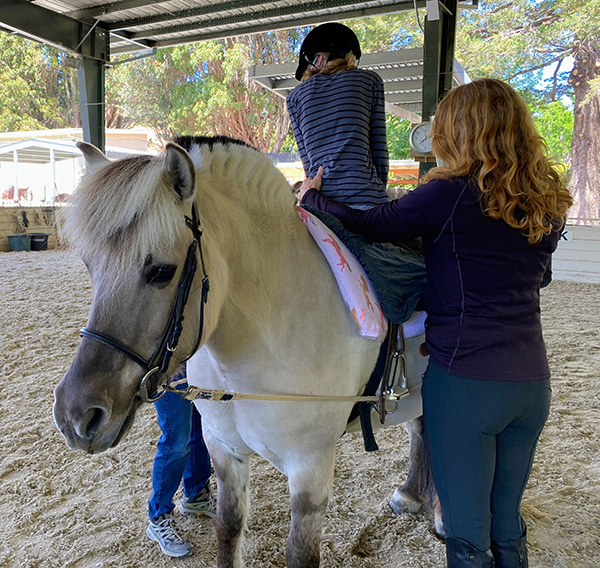About Therapy Horses
Equine Assisted Services are activities where individuals partner with equines to improve their cognitive, physical, emotional and social well-being and where the activities are mutually beneficial to the individual and horse. While these activities may involve recreation and/or competition, the purpose is primarily therapeutic and may involve unmounted activities, riding, driving and vaulting.
As prey animals, horses will instinctively flee when faced with danger or the unknown, but horses involved in Equine Assisted Services must overcome this natural instinct and remain calm to ensure the safety of the client and the horse handlers. For Equine Assisted Services involving Therapeutic Riding, they must be sound at the walk and trot (at the minimum) and be able to work several hours a day under saddle.
While horses with chronic, expensive health issues are not ideal, some organizations may accept horses with issues like navicular, laminitis, severe allergies, recurring colic, heaves, Cushing's Disease, Thyroid Disease, or inflammation but only if the horses have correct manners on the ground and when ridden.

Aldi, a therapy horse at
NCEFT
Aldi is a working athlete who is in top condition and excellent health. He has a gentle and tolerant temperament and is willing to be led at the halter or guided from behind using long lines. He has good manners in and out of the stall and is comfortable with loud noises and quick movements. He accepts novel environments like balls being tossed or bubbles being blown around him. He enjoys being around children as young as two as well as adults in their senior years.
Most therapy horses are not stallions
Most therapy horses are not untrained horses, including racehorses straight off the track
Most therapy horses involved with carrying special needs clients are not gaited horses
Most therapy horses involved with carrying special needs clients do not have severe eyesight or hearing loss
Most therapy horses do not have acute lameness that affects movement or temperament
An Ideal Therapy Horse Does NOT Display:
Aggression towards people, like biting, kicking, and excessively dominant body language, including vet, dentists and farrier
Aggression towards horses that keeps the horse from integrating into a herd or concentrating during a lesson
Other bad or dangerous habits in the barn or pasture
Inability to focus on work when out-of-sight of other horses
Bucking, rearing, running, spinning, and any bad or dangerous habit under saddle
Unpredictable behavior in new places
Dangerous loading or trailering habits
Inability to accept beginning and unbalanced riders
Head-, ear-, or body-shyness and/or Hyper-sensitivity to new objects
Inability to adjust to the program schedule of work, turnout, and stall time